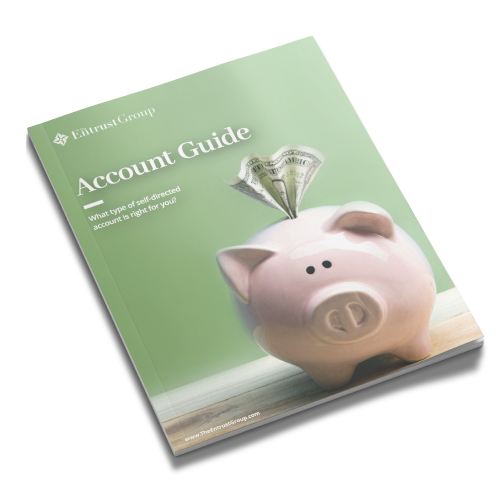Top 5 Mistakes to Avoid in Retirement Planning

Estimated reading time: 9 minutes
Financial freedom in retirement: It’s a horizon that all dream of reaching, and many are planning for sooner than ever before.
Since the publication of the 1992 book, Your Money or Your Life, many have followed an aggressive saving strategy known as Financial Independence, Retire Early (FIRE). Proponents of FIRE funnel up to 70% of their income towards savings. This radical frugality allows them to quickly build a sizeable nest egg and achieve their retirement goals as early as 35 or 40.
However, that’s only one side of the story. According to 2022 data from the US Census Bureau, nearly half of Americans between the ages of 55 and 66 have no retirement savings. For these Americans, Social Security income may provide some financial respite. Although, with an average payment of about $1,700, they may need to work through their retirement age years to pay the bills.
Whether you’re 25 or 55, the best time to start building your retirement portfolio is right now.
In this article, we’ll explore five common mistakes to avoid in planning for retirement. That way, you can construct a roadmap for a safe and secure financial future in your golden years.
1. Neglecting to Save Early
If you want to maximize the benefits of compound interest, time is your most formidable asset.
Compound interest is like a snowball rolling down a hillside – the earlier you start, the more time your investments have to grow, and the more your earnings can multiply. Compounding can significantly boost the ultimate value of your nest egg, and even modest contributions can grow into substantial sums over the decades.
For example, let’s say you’re able to save about $500 each month during your working years, and your portfolio averages 7% annual returns.
If you start saving for retirement at 37, your portfolio will be worth about $610,000 by the time you turn 67. It’s a hefty sum, no doubt. Although, many experts recommend that you have saved at least 10x your salary by age 67. If you earn the median household income of $71,000, this leaves you short of the recommended amount. Even if you’re able to make it work, it doesn’t offer much wiggle room for travel or hobbies.
So, let’s imagine you start saving for retirement at 27 instead. Simply by starting ten years earlier, your portfolio would be worth over $1.3 million at age 67. It’s a much more comfortable amount, one that may provide more peace of mind over the long term.
Plus, these days many companies offer generous employer-matching contributions, potentially adding a significant amount to your growing nest egg with each paycheck. If your company offers 401(k) employer-matching contributions, take advantage of their entire match. Otherwise, you’re leaving free money on the table.
What if you’re well into your 40s or 50s and haven’t begun saving yet? Fortunately, there are ample opportunities to catch up.
For example, Congress incentivizes those aged 50 and older to round out their retirement funds by expanding the contribution limits to IRAs and 401(k)s.
In 2025, you may increase your 401(k) contributions by an extra $7,500 and your IRA contributions by an additional $1,000. It's important to note that the IRA limit applies collectively to all your IRAs. For instance, if you maintain both a Roth and a traditional IRA, contributing an extra $500 to the Roth and $500 to the traditional account would max out your total catch-up contribution limit.
2. Underestimating Healthcare Costs
One of the most commonly underestimated expenses in retirement is healthcare.
As we age, medical needs tend to increase, potentially putting a strain on retirement funds. From routine check-ups to unexpected medical emergencies, healthcare costs can quickly add up, impacting your financial security. If you need additional long-term care, a private room in a nursing home can cost up to $9,000 per month.
Medical costs have experienced some of the steepest price increases in recent decades. From 1998 to 2018, general inflation stood at 56%. However, the cost of hospital services rose at a rate of 211%. This rise in consumer prices is even greater than the skyrocketing college tuition rates over the same time frame (184%).
Plus, we’re living longer than ever before. We have twice as many centenarians (those who are 100+ years old) as we did just 20 years ago. This is undoubtedly good news and may give you even more runway to build wealth. However, it also means you have to plan for a retirement that lasts not just 10 or 20 years, but nearly as long as your entire career.
One way to prepare for rising healthcare costs is by devoting some of your retirement funds to a Health Savings Account (HSA), available for those with high-deductible health plans.
HSAs combine the tax-deferred and tax-free benefits of traditional and Roth IRAs into a single account. Contributions are a straight-line tax deduction on your tax return while earnings on investments grow tax-deferred.
There is one limitation: you may only distribute the funds tax-free if they are used to cover qualified medical expenses. Some examples of qualified medical expenses are hospital visits, dental care, and prescriptions. If you’d like to learn more about which medical expenses may qualify for a tax-free HSA distribution, read through IRS Publication 502.
If you’d like to learn more about HSAs and how they compare to other self-directed accounts, download our Account Guide.

Find out which account is right for you
3. Taking Social Security Too Early
Under current law, you are eligible to collect Social Security once you reach the age of 62.
Taking this money as soon as possible may be tempting in an economic environment that many perceive to be volatile, but some market experts recommend that people postpone taking these benefits for as long as possible. The payments increase by 7-8% each year between the ages of 62-70. The longer you wait, the bigger your payout.
The average monthly retirement benefit currently stands at about $1,700, with the maximum benefit reaching $3,627 for those retiring at full retirement age. If you were born in 1960 or later, the age at which you may receive full Social Security benefits is 67. If you were born before 1960, you may reach full retirement age slightly sooner.
Your career earnings significantly influence your retirement payouts, but delaying benefits can substantially increase your monthly checks. A 2022 study suggests that waiting beyond age 65 would benefit all U.S. workers aged 45 to 62. In fact, waiting until age 70 would still benefit over 90% of workers, with an average increase in lifetime spending power of over 10% for each retiree.
Despite these findings, only one in 10 workers wait until age 70 to claim their benefits. This leads to an estimated median household loss of $182,370 in lifetime discretionary spending.
However, not everyone should wait until age 70 to claim their Social Security benefit. Those with shorter life expectancies or challenging financial situations may find early claims more sensible. Avoiding medical or personal debt may pose a greater financial and psychological gain than any increase they may receive in future Social Security benefits.
4. Forgetting to Plan for Deferred Taxes
Make no mistake, tax-deferred accounts are one of the most effective ways to boost your retirement savings.
By postponing income tax payments, you may be able to sock away a significantly greater portion of your earnings to your 401(k) or IRA. However, these accounts are called tax-deferred for a reason. You have to pay the piper eventually. Some retirees forget to factor this into their expected earnings once they enter retirement. It’s crucial that you avoid this retirement planning mistake, as your actual income may be significantly lower than you think.
Depending on the amount you withdraw each year, you could find yourself in a higher tax bracket than you initially anticipated. This can lead to higher tax rates on your withdrawals, further reducing your retirement income.
Savvy savers may plan for tax rates to increase in the future. According to a study from the Center on Budget and Policy Priorities, tax burdens on middle-income Americans reached historic lows in 2014. Since then, tax burdens have actually decreased further for middle-income Americans.
It’s impossible to accurately predict tax brackets decades down the line. However, risk-averse investors may consider factoring in tax increases in the future. That way, they’ll be able to maintain financial security even if tax rates spike just as they enter retirement age.
Another component of tax-deferred accounts is required minimum distributions (RMDs) which begin at age 73. Failing to take your RMD from certain retirement accounts can result in substantial IRS penalties. Proper planning can help you avoid these penalties.
To account for deferred tax payments, consider speaking with a financial advisor or tax professional who can help you navigate the implications of your retirement accounts. Strategies like Roth conversions, managing withdrawals strategically, and diversifying your retirement portfolio may help mitigate the impact of deferred income taxes on your retirement finances.
5. Failing to Diversify
Diversification is especially crucial in retirement due to the shifting dynamics of financial goals and risk tolerance during this life stage.
As you transition to a fixed income, you become more vulnerable to market volatility. Diversifying your investments across various asset classes helps mitigate the impact of a poorly performing sector on your overall portfolio, reducing the risk of significant losses.
A well-diversified portfolio can also provide multiple sources of income, such as dividends, interest, and capital appreciation. This can help ensure consistent cash flow and reduce the chance that you’ll need to sell an asset with significant growth potential when the next economic downturn hits.
If one asset class is underperforming, you can rely on other assets and maintain your desired lifestyle. By diversifying your portfolio across a range of asset classes, industries, and geographic regions, you're better positioned to weather market fluctuations and achieve your financial goals.
One way to achieve greater diversification with your portfolio is by opening a self-directed IRA (SDIRA).
Achieve Greater Retirement Diversification with an SDIRA
Unlike traditional retirement accounts, which often limit investments to stocks, bonds, and mutual funds, an SDIRA empowers you to invest in a broad range of assets, such as real estate, precious metals, private equity, and more. This diversification can help mitigate risk by spreading your investments across different asset classes that may react differently to market fluctuations.
Additionally, SDIRAs offer greater control over investment decisions, allowing you to capitalize on your expertise and preferences. This personalized approach can provide a more balanced and adaptable investment strategy, enhancing your potential for long-term financial success.
If you’d like to learn more about how to achieve greater diversification with your retirement portfolio, download our SDIRA Basics Guide. Inside, you’ll find dozens of examples of investments you could explore to diversify your retirement funds. We’ve also included a simple, step-by-step guide to taking control of your retirement funds.
Prepare for a Comfortable Retirement with Entrust
Securing a comfortable retirement necessitates careful planning and informed decision-making. Avoiding these five common retirement mistakes can help you achieve financial security and peace of mind in your golden years. Remember that proactive steps, thorough research, and professional guidance can significantly impact your financial security in retirement.
If you’re interested in taking control of your retirement funds, open your SDIRA today. All you need to provide is a copy of a government-issued ID and 10 minutes of your time.
Want more content like this? Sign up for our monthly newsletter. We’ll keep you up-to-date on the latest trends in retirement planning and self-directed investing with comprehensive blog posts, webinars, and guides landing directly in your inbox.































9 Comments